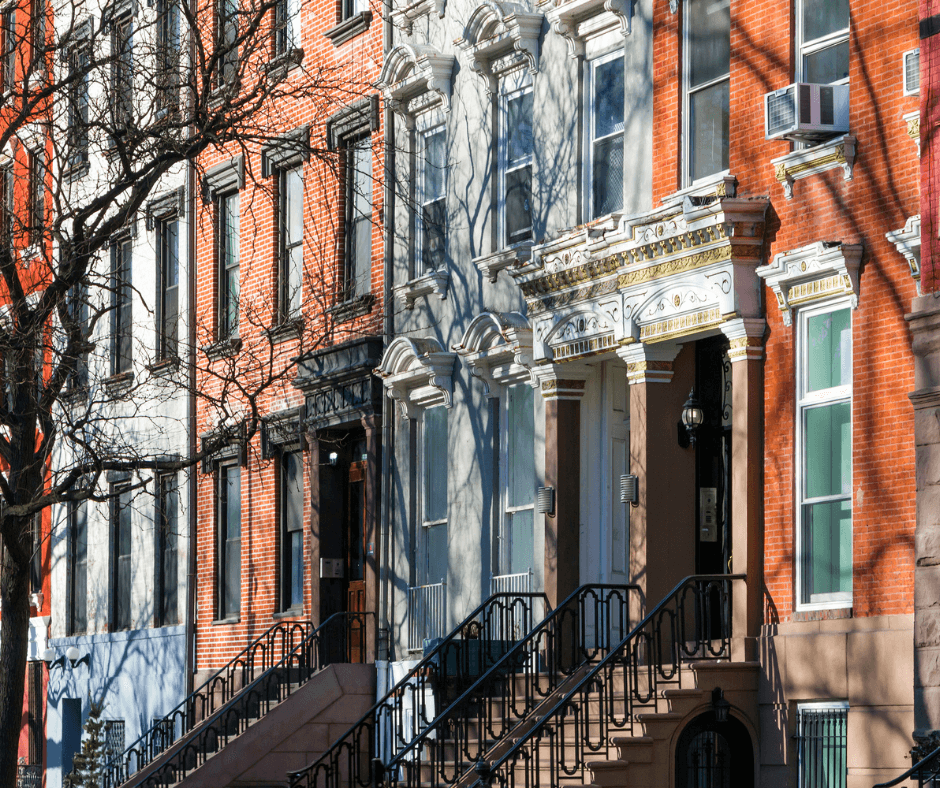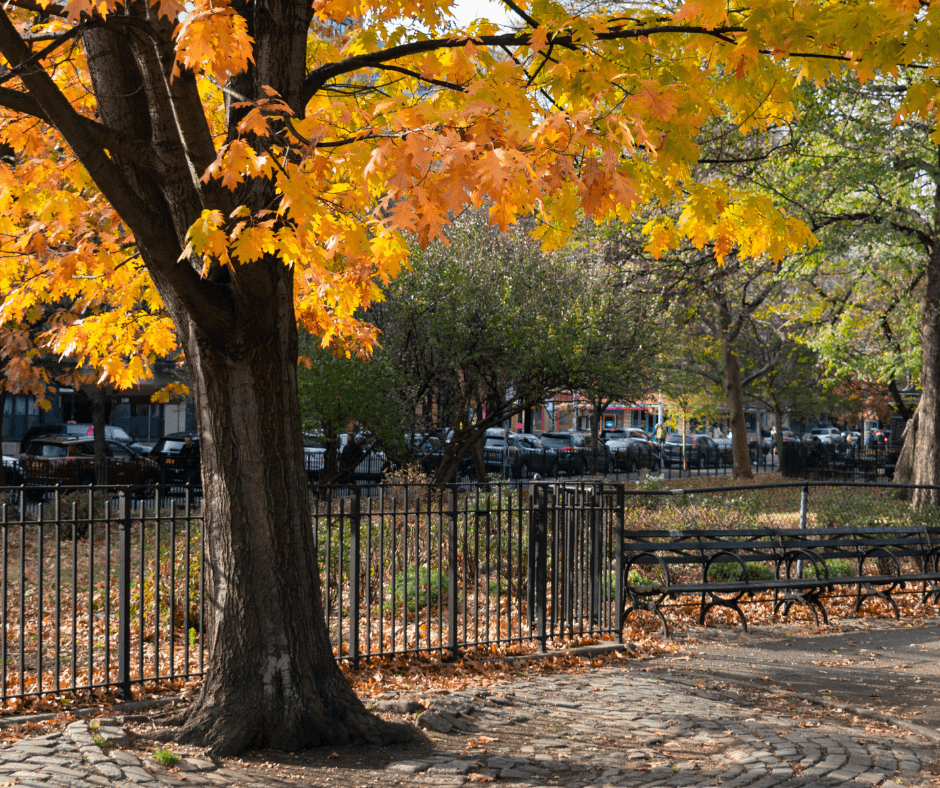
Moving to the East Village: An NYC Local Guide
Planning a move to Manhattan’s East Village? This part of the city is full of history, food, and late-night hangs. This guide covers what it’s like to live here, from rent prices and building types to insider tips and small businesses you’ll want to know.
In This Guide
Neighborhood Snapshot
Why People Move Here
What to Know Beforehand
Pros & Cons
Insider Tips
Our Fav Small Businesses
Neighborhood FAQ
Looking for more moving tips and neighborhood guides? Check out our other blogs. You can also send us a note or request a free estimate — we’ll respond quickly with clear answers and a custom rate.
East Village Neighborhood Snapshot
Adjacent Neighborhoods Alphabet City, Lower East Side, NoHo
Boundaries Houston Street on the south, 14th Street on the north, Broadway on the west, East River on the east
ZIP Codes 10003, 10009
Median Rent About $5,395 as of August 2025 (renthop)
Median Sale Price About $1,000,000 (Realtor.com)
Transit Served by the 6, L, and F lines, with transfers at Union Square
Walk Score 98, with excellent transit and bike access (Walk Score)
Typical Buildings Older walk-ups with three to five flights of stairs; some newer condos
Population Snapshot About 83% renters, median age early 30s (RentCafe)
Adjacent Neighborhoods Alphabet City, Lower East Side, NoHo
Why do people move to the East Village?
Food and Nightlife: The East Village nightlife is famous for dive bars, cocktail lounges, and late-night food that keep the streets busy long after midnight.
Arts and Culture: Historic places like St. Marks Church, the Ukrainian Museum, and Nuyorican Poets Café are neighborhood fixtures.
Parks and Gardens: Tompkins Square Park is a central gathering spot. There are smaller community gardens scattered throughout the East Village.
Community Feel: The mix of students, artists, longtime locals, and new arrivals gives the area a layered identity.
What should you know before you move to the East Village?
Boundaries and Micro-Neighborhoods
The East Village covers Houston Street in the south, 14th Street in the north, Broadway on the west, and the East River on the east. Smaller areas inside include Alphabet City, Loisaida, and blocks close to the Lower East Side.
Safety and Noise
The 9th Precinct oversees the neighborhood. Reported crime has dropped sharply since the 1990s. Nightlife is part of daily life here, so some blocks are busier and louder after dark.
Transit Access
Commuting from East Village to Midtown or Brooklyn is straightforward thanks to multiple subway lines and frequent buses. Three main subway lines serve the East Village: the 6, L, and F. Union Square and Astor Place are close to many buildings, making transfers simple. Bus routes and CitiBike docks in the East Village fill in the gaps.
Building Types and Layouts
Most East Village apartments are in prewar walk-ups. Elevators are less common, and newer condos are scattered in only a few pockets. Many units are small and stairways are narrow, which makes moving furniture a challenge.
Moving Day Logistics
Many East Village buildings require you hire professional movers who are licensed and insured. Even walkups in this neighborhood tend to require Certificates of Insurance (COIs) for moving. Request the details from your building ahead of your move.
Ask your building about parking or loading zones in advance.
Avoid street fairs and parade days when possible.
What are the pros and cons of living in the East Village?
Living in the East Village NYC comes with both benefits and challenges
Pros
Walkable, easy subway access
Wide choice of restaurants and nightlife
Strong sense of community
Close to Union Square and Lower East Side
Cons
East Village median rent is high compared with many parts of Manhattan
Street noise is common
Elevators are rare in older buildings
Parking and loading zones are limited
What are Some Insider Tips for Living in the East Village?
Find hidden green oases in tight blocks.
La Plaza Cultural de Armando Perez is a community garden that occupies about 0.64 acres. It’s not just trees and benches — locals grow edible plants, host small performances, and compost there. Similarly, Green Oasis Community Garden sits between Avenues C and D on East 8th Street, with art installations (Gilbert’s Sculpture Garden) and a community gathering vibe.
Tap into the small-power networks.
Many local businesses (cafés, galleries) operate small “members only” events: reading nights, open calls, pop-ups—often shared on neighborhood mailing lists or community boards rather than big media. If you live there, your best lead into culture may come from neighbors, not Google.
Know your corridor quirks.
East 6th Street has surprising diplomatic / international ties — e.g. the Ukrainian Museum is located at 222 East 6th Street, between 2nd and 3rd Avenues.
Our Favorite Small Businesses in the East Village
Independent shops, cafés, and galleries are part of what makes the East Village scene unique.
Porto Rico Importing Co.
A neighborhood institution since 1907, Porto Rico Importing Co. is one of New York’s oldest coffee importers. The East Village shop on St. Marks Place is packed with burlap sacks of beans, shelves of teas, and the smell of fresh roasts that spills onto the sidewalk. Locals stop in for affordable whole beans and unusual blends you won’t find at chain cafés.
Jane’s Exchange
Jane’s Exchange has been part of the East Village since the 1990s and remains one of the city’s few children’s resale and consignment shops. Families bring in gently used clothes, toys, and gear, and walk out with affordable finds that keep items in circulation. It’s as much a community hub as a store, with a focus on sustainability and supporting local parents.
Boris & Horton
Under new ownership, Boris & Horton blends a coffee shop with a social space for dogs and their humans. The East 12th Street location offers Stumptown coffee, light snacks, and plenty of space where pets are welcome inside. The café also hosts adoption events and community fundraisers, making it a favorite for dog owners across the city.
Sake Bar Decibel
Tucked into a basement on East 9th Street, Sake Bar Decibel is easy to miss from the street but unforgettable once you step inside. Open since the 1990s, it was one of the first bars in New York dedicated exclusively to sake. The low-lit room feels like a Tokyo hideout, with graffiti-covered walls and a menu that runs from classic bottles to rare small-batch pours.
Frequently Asked Questions:
The East Village, NYC
Is the East Village a good place to live?
Yes, the neighborhood is lively, walkable, and full of culture. Rent is high and noise is common, so it suits people who enjoy an active setting and have a larger budget.
Is the East Village safe?
Crime has decreased sharply since the 1990s, and most residents feel comfortable here. Like any city neighborhood, it’s smart to stay alert at night.
How expensive is the East Village?
Median rent is about $5,300, with one-bedrooms usually between $3,700 and $4,200 as of fall 2025.
Is the East Village noisy?
Yes, streets with restaurants, bars, and music venues stay busy late. Quieter areas are closer to Avenue C and D or north of 10th Street.
East Village vs. West Village?
The West Village is calmer, more expensive, and lined with brownstones. The East Village is younger, less polished, and more casual, with a heavier focus on nightlife.
Moving to or from the East Village, Cool Hand Movers has you covered. Our professional moving and packing services take the stress and heavy lifting off of your plate. Reach out today for a free, custom estimate for your move.
Hiring East Village movers can save time and hassle, especially if your building requires a COI (Certificate of Insurance).
Many newcomers underestimate how tough moving day in the East Village can be with narrow streets and limited parking.
Our team specializes in handling East Village walk-up apartments, where extra crew and planning often make the difference.



